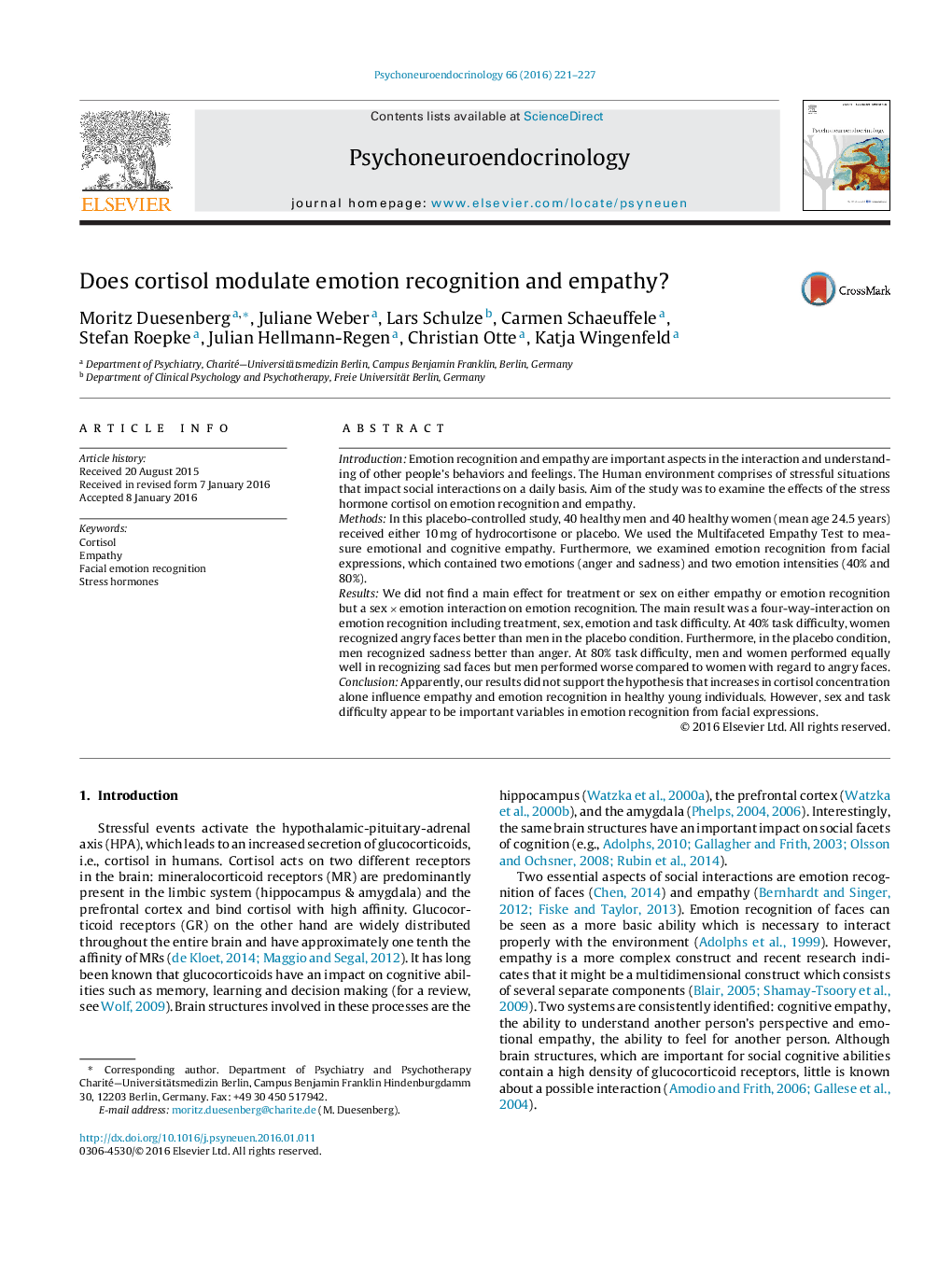| Article ID | Journal | Published Year | Pages | File Type |
|---|---|---|---|---|
| 336334 | Psychoneuroendocrinology | 2016 | 7 Pages |
•Investigating the effects of the stress hormone cortisol on emotion recognition and empathy.•We used the Multifaceted Empathy Test and an emotion recognition task.•Cortisol seems to have no major impact on emotion recognition and empathy.•Gender and task difficulty appear to be important variables in emotion recognition.
IntroductionEmotion recognition and empathy are important aspects in the interaction and understanding of other people’s behaviors and feelings. The Human environment comprises of stressful situations that impact social interactions on a daily basis. Aim of the study was to examine the effects of the stress hormone cortisol on emotion recognition and empathy.MethodsIn this placebo-controlled study, 40 healthy men and 40 healthy women (mean age 24.5 years) received either 10 mg of hydrocortisone or placebo. We used the Multifaceted Empathy Test to measure emotional and cognitive empathy. Furthermore, we examined emotion recognition from facial expressions, which contained two emotions (anger and sadness) and two emotion intensities (40% and 80%).ResultsWe did not find a main effect for treatment or sex on either empathy or emotion recognition but a sex × emotion interaction on emotion recognition. The main result was a four-way-interaction on emotion recognition including treatment, sex, emotion and task difficulty. At 40% task difficulty, women recognized angry faces better than men in the placebo condition. Furthermore, in the placebo condition, men recognized sadness better than anger. At 80% task difficulty, men and women performed equally well in recognizing sad faces but men performed worse compared to women with regard to angry faces.ConclusionApparently, our results did not support the hypothesis that increases in cortisol concentration alone influence empathy and emotion recognition in healthy young individuals. However, sex and task difficulty appear to be important variables in emotion recognition from facial expressions.
